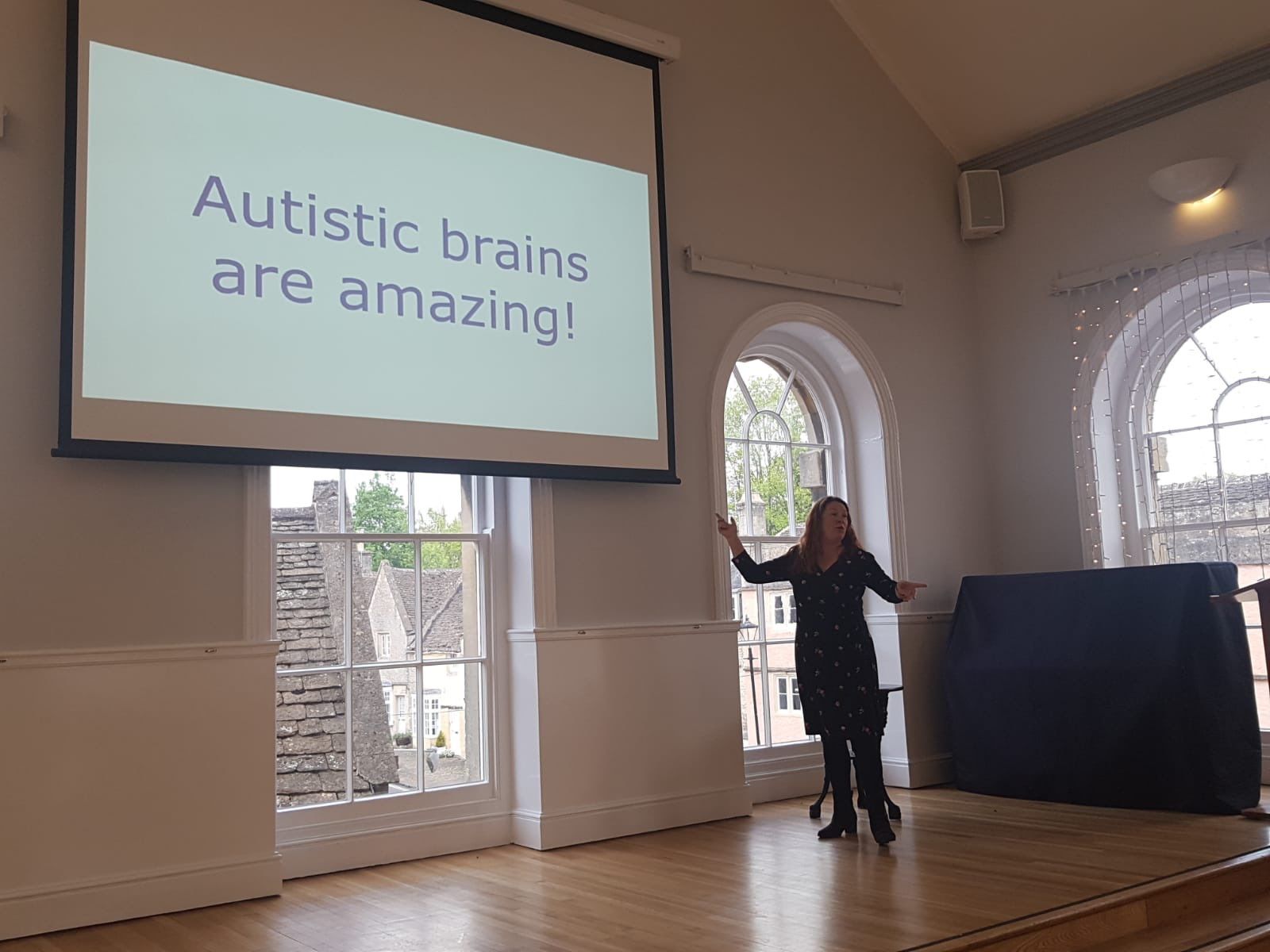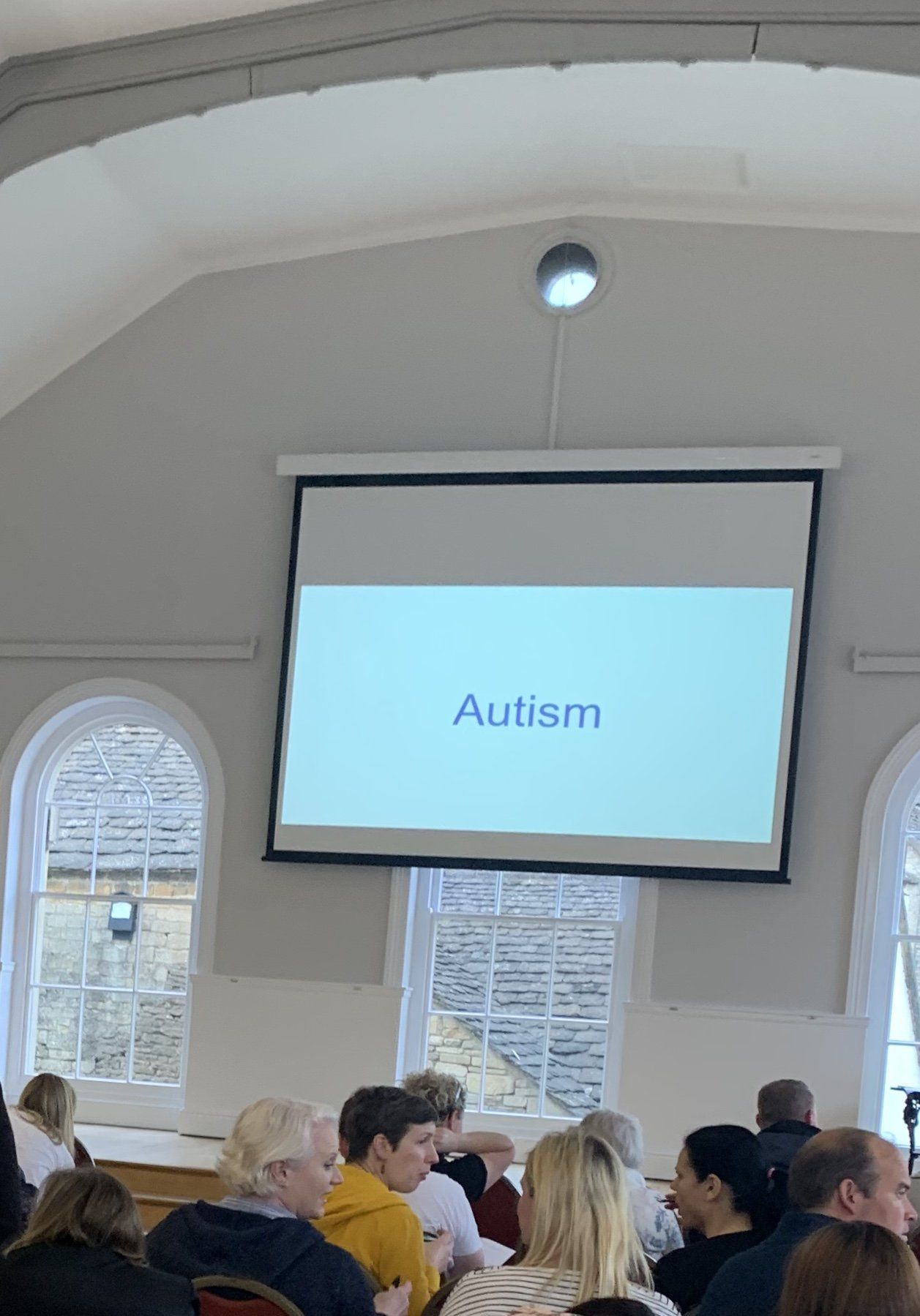Unlocking The Hidden Awesomeness of Autism
Unlocking the Hidden Awesomeness of Autism
The Hidden Awesomeness of Autism
Autistic people are awesome. They just sometimes find it tricky to let everyone else know that.
Their heads are often whirring with thoughts and ideas, and their brains are amazing at working in creative and unusual ways. When you tell someone your partner or child is Autistic many say back, ‘Well I bet they’re good at maths.’ That’s a bit of a myth, but there are many things research suggests that they do excel at. I’ve worked with hundreds of different companies over the past 20 years and encounter Autistic people in pretty much all of them. They tend to be specialists in their areas and very good at their jobs. The children I've worked with have all had at least one fascinating obsession or skill.
The BIG BUTS!
All Autistic people have an awesomeness but are not always able to develop it, be aware of it, or share it.
Two of the major issues are anxiety and overload. Autistics seem to run with their default anxiety levels set to high. Perhaps the processing, memory and connection differences in their brains make them constantly on high alert. If there’s a good chance lots of things make you physically uncomfortable and you’re prone to being overloaded, then you’re likely to be constantly worried and avoiding anything that might be unpleasant. Being overloaded with input, demands and information leads to meltdowns or shutdowns; the brain’s safety release valve and a way of making the world stop whilst they recover. It’s hard to feel fabulous when you’ve lost control and are slamming doors, throwing plates or rocking underneath a table.
Sensory processing issues mean that the constant inputs from the world aren’t handled very well by the brain. This distracts a person from enjoying what they’re doing, and often prevents them from trying something new.
There’s the usual culprits of touch, taste, smell, sound and noise, but let’s add to that mix motion, balance, time awareness, pain, internal sensations (e.g. hunger, full bladder) and emotional responses. Every Autistic person’s sensory responses are different. I hate spinning or going upside down, the smell of most washing up liquids and fish, wool and strong spices. By hate I mean that these things make me heave. Except for wool, I just scratch a lot. And it’s dead fish waiting to be eaten that I hate, not live ones. Autistic people may also be under-sensitive to some things, so might not notice input, such as when they’re full up, heat or pain.
Hyper-Focus Super Power
The ability to hyper-focus leads to special interests, obsessions and deep knowledge. These are key as not only might they be a career opportunity, it’s something to talk about, find a group of fellow devotees and be happy doing. Their brains are not always focussed on the right things, though. Your child who is a whizz at Minecraft coding, dog breeds or recalling every Dr Who episode probably won’t know where their shoes are right now. Short term memory and executive functioning don’t always work as effectively as we’d like. This means following instructions, getting ready for the day and generally staying organised can be tricky.
Some Autistic people don’t need others to tell them they’re awesome and don’t feel the need to share their skills or abilities with the world. Think opposite end of the scale to the selfie and social media obsessives who need constant validation through likes and swipes.
Others struggle to talk about their abilities as expressive language may be a problem. Finding the right words at the right time in the right way can be difficult. If you’re a little bit quirky you may be bullied or rejected by peers, so many talents lay hidden. I know one of my kids gave in trying to join in with group activities last year at school. He has a sharp, problem solving and creative mind, but lots of kids seem to think he’s a bit odd and ignore him.
The Tap Dancing Lion
Skills, talents and abilities don’t just fall out of the sky and land in our laps all ready to go. For some Autistic people trying something new can be like trying to persuade a lion to tap dance on stage. The notion seems ridiculous and the response fierce! It all comes back to anxiety or overload responses. We don’t all need to be world travellers, culinary experts and multi -talented superstars, but if you don’t try you won’t know. Something new for an Autistic person may even be a different brand of ketchup or table in a restaurant. I managed to coax my son into a drum lesson with a wonderfully calm tutor, and we discovered he has an exceptional sense of rhythm. If things are calm, sensory input reduced and there’s no pressure all three of my children will try something new. Trust is absolutely key to this.
Unlocking the awesomeness
- Stretch and shrink the world as needed - imagine a balloon. Inflate it slowly, give it time to stabilise, inflate it a bit more, then let the air out a little if it’s overstretched. Take this approach when helping to develop their awesomeness and trying new things. Shrink the world by going back to something familiar and safe if they feel overstretched
- Don’t force a new experience – if anxiety levels are high and everyone around them is stressed, then it will fail
- Find multiple ways to communicate needs and skills – through words, pictures, email, texts, photos etc etc
- Feedback doesn’t have to be instant - delayed responses give time to process what’s happening and allow time for decisions
- Broaden your horizons – it’s a good hobby if it makes someone happy. Don’t dismiss a special interest just because it doesn’t fit in with your view of what’s fun or worthwhile
- Poker face – don’t judge with a sneer or a laugh. Remember the world is full or weird and wonderful jobs. We really do need screw measurers, pet food tasters and worm breeders.
- Be patient - my son’s annoying habit of cutting up bits of paper has turned into the creation of templates for spray paint art.
- Be clear that it will be okay – let them know it’s okay to try something new, to find it tricky, to try again, to succeed, or to walk away if it doesn’t work out.
Awesome stuff
Just in case you haven’t been able to identify your own or your loved one’s awesomeness here are a few things that researchers suggest Autistic people may be particularly good at. I’ve included Acting as a common skill. Many Autistic people act throughout the day to try and fit in and be accepted. This is a real shame, and acceptance would be far better, but it does help create some awesome acting skills. If you’ve ever seen an Autistic teenager strop when you say no to more computer time or ask them to do their homework, then you’ll know they should all be in line for an Oscar nomination. Please note Autistic teenagers are just as good at being stroppy, moody and grumpy as every other teenager.
I've included this list as unfortunately many of these skills are overlooked or taken for granted in life but they really are awesome:
Pattern Recognition - Fact Recall - Super Focus - Original Thinking - Challenging Boundaries - Detail Oriented - Unconventional - Curious - Heightened Sensory Awareness - Strong Interests - Specialists - Creative - Acting – and a million more things!
by Helen Eaton
Through her work, Helen Eaton (MSc, PGCE) has gained an unusual and fascinating insight into both lifelong education and the workplace. She combines over 20 years’ experience delivering management training to the UK’s leading IT and Finance companies with a passion for education and a teaching qualification. Now specialising in Neurodiversity, she has worked with many families and professionals, promoting the importance of understanding and supporting Autism and Specific Learning Difficulties. Most importantly, she has a Neurodivergent family and rejoices in the uniqueness of their Autistic, ADHD and Dyslexic minds.
If you reproduce or share this work please acknowledge the source and the author.









